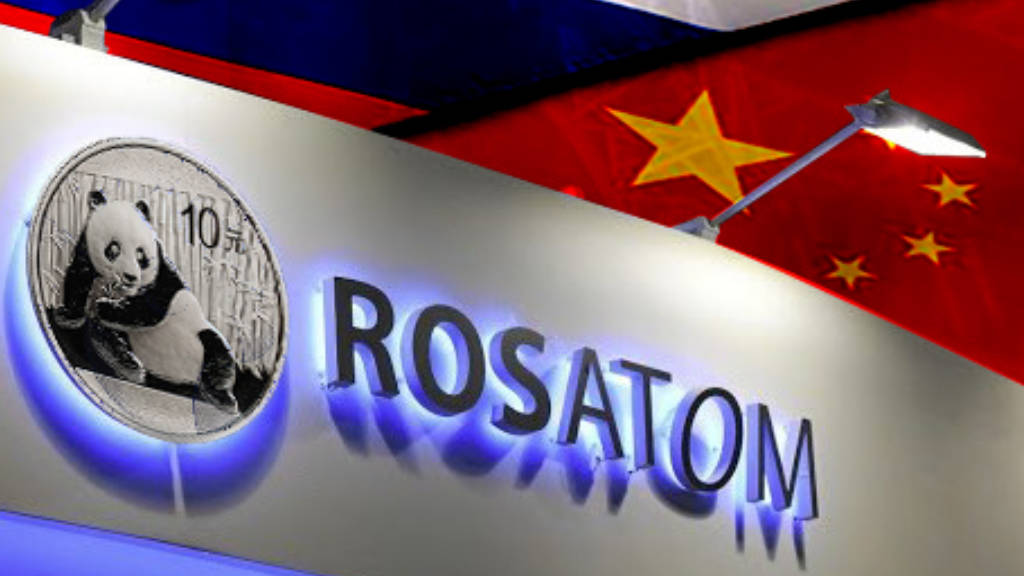Russia’s state-owned nuclear operator, Rosatom, is preparing to raise funds on the Chinese bond market. Rosatom, which builds nuclear power plants in Russia and abroad, is discussing the possible timing of a sale of RMB Yuan “Panda Bonds” and advise on how much it might raise. We first raised the intelligence that the offering was to occur in early August.
A bond sale would help Rosatom’s international expansion and make it the first Russian company to tap China’s onshore public market for panda bonds since aluminium producer Rusal in 2017. That raised ¥10 billion (₽117.5 billion, or US$1.4 billion) with a tenor of up to 7 years.
Rosatom have been highly active globally in promoting the use of its nuclear power plants, with discussions taking place concerning installations in Brazil, Ethiopia, Laos, Malaysia, Burkina Faso and Mali, Niger, Bangladesh, Bolivia, and Turkiye, Uzbekistan, in addition to Uranium mining in Tanzania and nuclear waste management in South Africa.
Interest on the China Panda Bond market is likely to be substantial. When China’s State Owned China National Nuclear Power (CNNC) conducted an IPO in 2015, its shares rose by 44% on the first day of trading. While Panda bonds are different, the appetite for energy and infrastructure paper assets in China remains high. Rosatom’s Panda Bonds experience will test the Asian market for Russian MNC valuations.
Russia’s Deputy Finance Minister, Ivan Chebeskov, has said that other Russian companies are also interested in selling Panda bonds, stating that “The discussion is ongoing, we are working out how best to do it.”
Other potential Russian candidates include gas and oil company Gazprom, which last week signed a long-awaited agreement on the Power of Siberia 2 pipeline with China during Russian President Vladimir Putin’s visit to the country.
During Putin’s visit to China, Alexey Likhachev, Rosatom’s director-general and a member of the president’s delegation, pledged to “help China overtake the US” in nuclear power.
Russia had already built four reactors of more than one gigawatt each in China and is constructing another four, Likhachev said.
Rosatom is also the Russian agency responsible for the Northern Sea Route, the shorter shipping lane from Europe to China that runs entirely through Arctic waters and is only navigable for part of the year. Rosatom is also in the process of establishing a nuclear energy components sourcing office in China. That will presumably be looking to purchase Chinese equipment to service many of its international NPP projects.
Russian companies have been turning to alternative sources of funding since US and European sanctions blocked access to global financial markets in 2022 and interest rate increases made borrowing increasingly expensive at home.
Unlike most of Russia’s energy majors, Rosatom itself has so far avoided direct EU and US sanctions, with restrictions limited to a clutch of its subsidiaries that have been targeted by the US, UK, Australia and Ukraine. This is because both the US and EU are partially reliant on Russian uranium supplies. Rosatom has been chosen as the most logical choice for a test Panda bond sale because it would be more difficult to impose sanctions on it than on other Russian energy groups..
Alexander Gabuev, director of the Carnegie Russia Eurasia Centre in Berlin, said groups had previously been cautious about Russian fundraising because of concerns about secondary sanctions. However, he said that Beijing now felt “more confident”, believing its dominance of rare earth supplies had increased its leverage and viewing the Trump administration as less likely to impose sanctions than its predecessor.
Further Reading
Rosatom’s 2024 Global Nuclear Power Project Reach

 Русский
Русский













